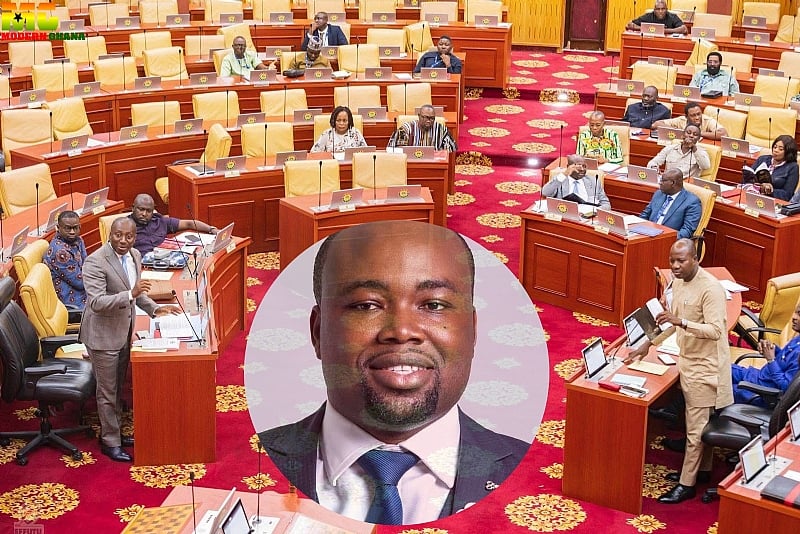The parliamentary session on Wednesday, February 19, 2025, witnessed a dramatic showdown between the Majority and Minority caucuses over the participation of the Akwatia MP, Ernest Yaw Kumi, who had recently been convicted of contempt of court. The Koforidua High Court had issued the conviction after the MP disregarded an interim injunction barring him from being sworn into office. Subsequently, a bench warrant was issued for his arrest due to his non-appearance for sentencing. Despite these legal proceedings, Kumi continued to attend and participate in parliamentary sessions, a move that ignited the controversy in the chamber. The central issue at stake was the delicate balance between upholding judicial authority and respecting the privileges of a Member of Parliament.
The Majority Leader, Mahama Ayariga, vehemently opposed Kumi’s attempt to deliver a statement, arguing that allowing him to do so would constitute an undermining of the judiciary and the rule of law. Ayariga threatened a walkout by his caucus if the Speaker permitted Kumi to proceed. He stressed the importance of respecting court orders and maintaining the integrity of the judicial process. The Majority’s stance reflected a strong commitment to upholding the principle of separation of powers and preventing any action that could be perceived as interference with the judiciary. Their intended walkout was a dramatic expression of their disapproval and underscored the seriousness with which they viewed the situation.
In stark contrast, the Minority caucus, represented by Nana Agyei Baffour Awuah, the MP for Manhyia South, defended Kumi’s right to participate in parliamentary proceedings. Awuah argued that in the absence of official communication from the court to the Speaker regarding any action against Kumi, the MP should not be restricted from performing his legislative duties. He questioned the Majority Leader’s authority to raise the issue of contempt of court, suggesting that such matters should be formally communicated by the court registry. Awuah’s argument centered on the importance of due process and the presumption of innocence until proven guilty. He implied that the Majority’s actions were premature and based on unverified claims. Furthermore, he emphasized the importance of protecting the rights of a duly elected Member of Parliament to represent his constituents.
The core of the disagreement revolved around the interpretation of Parliamentary privilege and its limits in the face of a court order. The Majority argued that allowing a convicted MP to participate in proceedings would set a dangerous precedent, undermining the authority of the judiciary. They believed that respecting court orders was paramount and that Parliament should not be seen as a sanctuary for those who flout the law. The Minority, on the other hand, prioritized the right of a Member of Parliament to fulfill his legislative duties until officially notified and prevented from doing so by the Speaker. They emphasized the need for formal communication from the court to the Speaker before any action could be taken against the MP.
The incident sparked a wider debate about the relationship between the legislature and the judiciary. It raised fundamental questions about the extent of parliamentary privilege and the circumstances under which it can be curtailed. The Majority’s position underscored the importance of upholding the rule of law and respecting judicial decisions, even when they pertain to members of Parliament. The Minority, however, highlighted the potential for abuse if MPs are prevented from carrying out their duties based on unverified claims or without due process. The incident highlighted the delicate balance between these two essential branches of government.
The situation surrounding the Akwatia MP presented a complex constitutional conundrum, highlighting the potential for conflict between the legislative and judicial branches of government. The opposing views within Parliament reflected differing interpretations of the law and the principles of separation of powers. The incident underscores the need for clear guidelines and procedures to address similar situations in the future, ensuring that both the authority of the judiciary and the privileges of Parliament are respected. The debate also brought to the forefront the importance of inter-branch communication and the need for clear protocols to address potential conflicts between the legislature and the judiciary. The case of the Akwatia MP serves as a potent example of the challenges that can arise in upholding the rule of law within a democratic system.


